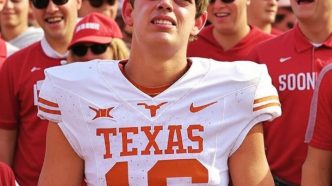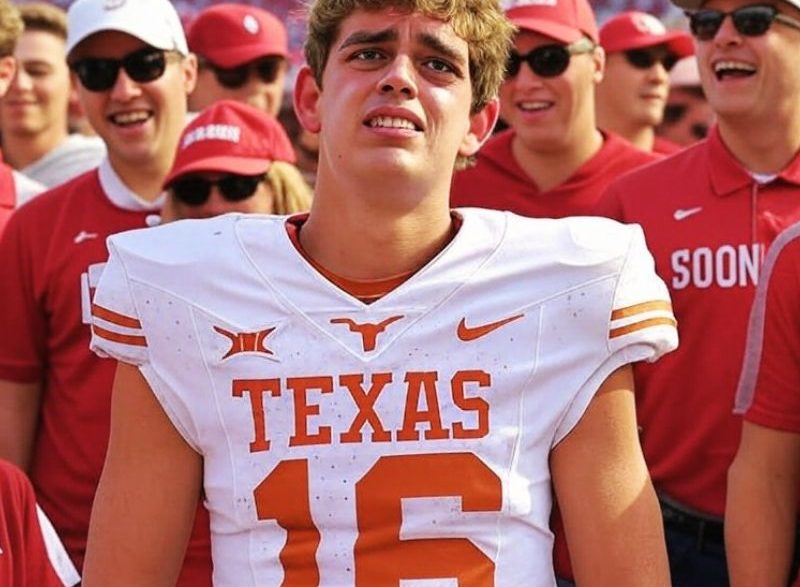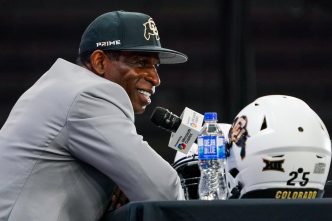The recent developments surrounding the Tennessee Volunteers and quarterback Nico Iamaleava have sent ripples through college football circles. It appears that Iamaleava’s holdout, following a contract dispute, signals a notable shift in the dynamics of player negotiations at this level. The crux of the matter rests on Iamaleava’s camp, which includes his father and agent, vying for a substantial raise from his expected $2.2 million to around $4 million for the upcoming season. This kind of raise is ambitious and perhaps reflective of the changing landscape of collegiate athletics, especially considering Iamaleava’s status as a high-profile recruit with an eye-catching $8 million NIL deal secured back when he was still navigating high school.
This past weekend, after opting not to show for practice, Iamaleava’s situation reached a boiling point. The context is crucial: with the spring transfer portal looming large, other quarterbacks like Carson Beck and Darian Mensah have already sought refuge in the portal for greener financial pastures at Miami and Duke. This raises the stakes for Iamaleava as well—his ambitions seem to echo a similar longing for a more lucrative deal.
The friction caused by Iamaleava’s growing demands has reportedly created tension among Tennessee’s administrative staff and within the locker room. Head coach Josh Heupel, upon realizing the breakdown in communication, made the call to move on. He emphasized the need to focus on building a committed roster, highlighting the reality of college football today. “At the end of the day, it’s my responsibility, our staff’s responsibility, to find 105 guys that are going to go give their all for Tennessee day in, day out, and certainly on game day too,” Heupel stated in a press conference following the team’s spring game.
This incident has sparked considerable discussion, particularly due to the holdout strategy typically associated with the NFL. It illustrates the murky waters of NIL agreements, which, lacking formal definition and enforcement parameters, leave both players and universities vulnerable. Marc Spiegel, founder of an NIL collective for Louisville, underscored the present uncertainty, suggesting that without more structure in contracts and penalties, this kind of situation could become recurring.
This scenario underscores a reality many in the landscape of college sports are grappling with—the balance of player power versus institutional stability. Iamaleava, a player who entered Tennessee with great expectations, might have visions of his value that don’t entirely align with the team’s assessment based on last season’s performance. This misalignment has now evolved into a communication breakdown that might define both his and the program’s future.
As the conversation around the transfer portal continues, it’s clear that we are still in the experimental era of NIL. College athletes are wielding more influence than ever, but with that power comes complexity. The mixture of promises made by collectives and the realities of fulfilling those promises can create a precarious environment. Iamaleava’s situation, while notable, may not set a new standard across the board—after all, the length of the deal he was initially granted was extraordinary by any measure.
Looking ahead, Iamaleava will explore his options in the transfer portal, hoping to find a place that recognizes his worth. Meanwhile, Tennessee faces its own urgency in search of a starting quarterback. This moment in college football captures the essence of change—while some may argue it reflects an unsettling transformation in the sport, it’s just another chapter in a continually evolving narrative that fans and insiders alike will be watching closely. As the game progresses, the discussions around NIL and its implications on college athletics will undoubtedly keep the chatter alive.







